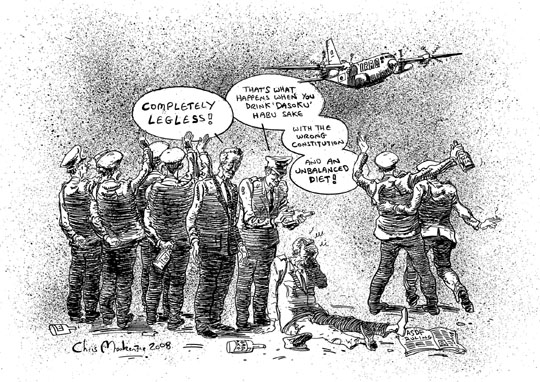On April 17 the Nagoya High Court ruled that the dispatch of Air Self-Defense Force personnel to Iraq was unconstitutional. While the ruling made news, it will probably not make much difference to Japan's foreign policy. Its significance may be nothing more than academic — after all, despite the headlines the government won.
In 1803 the U.S. Supreme Court ruled on Marbury v. Madison. The decision was of great significance because it established that the court had the power to find acts of Congress unconstitutional. What does this have to do with Japan? Bear with me.
One of the lesser celebrated aspects of Marbury is that Chief Justice John Marshall was dealing with an exceptionally difficult political problem, one for which he was in part responsible. The case involved a petition by one William Marbury demanding that Secretary of State James Madison deliver to him the letter of appointment as a Justice of the Peace, an appointment that had been made by the prior administration of John Adams. Unfortunately, justice Marshall had been the secretary of state in that presidency, so he was in essence responsible for the failure to deliver the commissions before it ended. Furthermore, there was tremendous hostility between the new government led by Thomas Jefferson and the ousted Federalist Party of the Adams presidency.


















With your current subscription plan you can comment on stories. However, before writing your first comment, please create a display name in the Profile section of your subscriber account page.